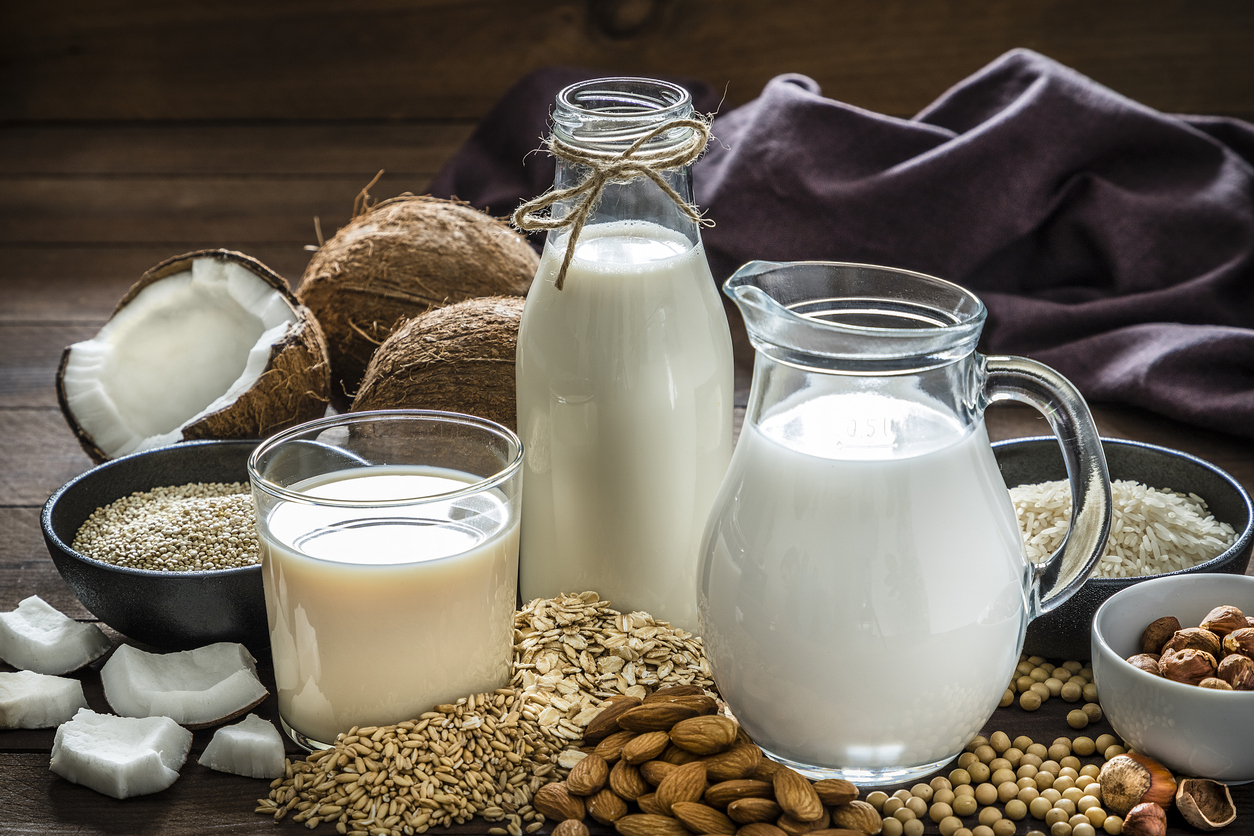93% of nutrition professionals in Portugal agree: plant-based dairy alternatives can be part of a healthy diet, but call for clearer guidance
Last Updated : 12 June 2025
Brussels, 12th, June 2025 – A new survey conducted by the European Food Information Council (EUFIC) shows strong and growing support among nutrition professionals in Portugal for plant-based dairy alternatives (PBDAs), such as drinks and yoghurts made of legumes (e.g., soy), oats, nuts (e.g., almonds), rice, or coconut, with 93% agreeing that these plant-based alternatives can be part of a healthy diet. In addition, 76% support including PBDAs in the national dietary guidelines. Of those who supported their inclusion, 62% were in favour of including only PBDAs that are fortified with micronutrients.
As interest in plant-based eating continues to rise in Portugal and across Europe, understanding how PBDAs contribute to a healthy and sustainable diet is becoming increasingly relevant, both for consumers and healthcare professionals. While support is strong, perceptions differ on the nutritional value of PBDAs, their specific role in the diet, environmental impact and processing level, highlighting the importance of clearer guidance and communication to support informed recommendations.

Key insights from the survey:
- Generally aware about health benefits: Most experts agree that PBDAs are free from lactose (94%) and cholesterol (60%) and recognise that their nutritional value depends on the type of plant used (90%).
- Fortification is seen as essential: 96% of nutrition professionals believe PBDAs should be fortified with vitamins and/or minerals, highlighting that strong support for these products is conditional on their fortification.
- Nutritional comparison to dairy varies: While most (66%) consider PBDAs nutritionally equivalent to dairy, particularly when fortified, some view them as either inferior (23%) or superior (9%), or they do not know (2%).
- Recommendations driven by health, diversity, and sensory preferences: 40% of nutrition professionals would recommend PBDAs to increase dietary diversity or to accommodate taste and texture preferences. However, most experts cite managing lactose intolerance or dairy allergies (96%), or supporting vegan and plant-based diets (86%) as key reasons.
- Environmental friendliness matters: One third (32%) of respondents believe PBDAs are more environmentally friendly than dairy — and those who hold this view are more likely to support the inclusion of these products in the national dietary guidelines.
- Perceptions around price and taste: While most nutrition professionals recognise the health benefits of PBDAs, many (68%) believe they are more expensive than dairy. Opinions on taste are mixed, with 41% disagreeing with the statement that PBDAs are less tasty than dairy.
- Awareness gaps: Perceptions of PBDAs vary widely when it comes to nutritional value, processing, environmental impact, and fortification, highlighting the need for clearer education. For example, while 80%1 of PBDAs on the Portuguese market are fortified with key micronutrients like calcium and vitamin D, nutrition professionals estimated this figure at 52% on average, with estimates ranging between 20% and 100%.
A call for clearer guidance
Consumers are increasingly looking for plant-based choices that support both health and sustainability. These findings show that nutrition professionals are aligned with this shift, but also highlight the need for clear, evidence-based information to guide everyday decisions.
Dr Katerina Palascha, Senior Researcher at EUFIC
This survey indicates that perceptions of the fortification level of PBDAs in Portugal, nutritional value compared to dairy, and personal consumption significantly shape attitudes of nutrition professionals toward recommending PBDAs. These connections underscore the importance of accessible, up-to-date guidance in helping consumers navigate choices and adopt balanced, evidence-based diets.
ENDS
What are plant-based dairy alternatives (PBDAs)?
PBDAs, such as drinks and yoghurts made from legumes (e.g., soy), oats, nuts (e.g., almonds), rice, or coconut, have become increasingly popular in recent years. They are often used as alternatives to cow’s milk, and some are fortified with key nutrients to help meet daily nutritional needs.
About the survey
This online survey, commissioned by Alpro and conducted independently by the European Food Information Council (EUFIC) in early 2025, aimed to explore the perceptions, attitudes, knowledge, and practices of nutrition professionals in Portugal regarding plant-based dairy alternatives. A total of 139 participants completed the survey, including dietitians-nutritionists, academics, and final year undergraduate or master's students in nutrition in Portugal.
For more details, please consult:
For further information, please contact:
- Dr. Laura Fernández Celemín, Director General, EUFIC: laura.fernandez@eufic.org
- Dr. Katerina Palascha, Senior Research Manager, EUFIC: katerina.palascha@eufic.org
References